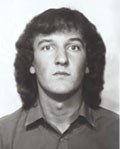TL:DR – Sciencebase owner, David Bradley, has been in science communication since January 1989.
I’m not retiring just yet, but since before the pandemic, I reduced my client-list and then during the pandemic and in the midst of family crises, i reduced my workload still further.
My focus is more on my wildlife photography and music these days, although I do still have to pay the bills and thankfully have outlets that are still willing to pay for my words. It would be nice to be able to pay the bills with the photography and music, but I don’t think that’s ever likely to happen.
UPDATE: 2019-01-23 – Ten years since I wrote this blog post and now I am fast-approaching my 30th anniversary…I’ve stuck with the science writing and blogging during the intervening years, watched my kids grow into fine young adults and found myself singing and playing in a choir, a band and as a solo act as well as photographing things endlessly, including in the last year or two, birds and moths.
2009-01-23 Today is my twentieth anniversary in #SciComm working as a science writer-editor. And yet, it seems like only yesterday that I walked into the editorial offices of the Royal Society of Chemistry, having abandoned the chemical lab in favour of publishing on 23rd January 1989. A fateful day. Not only did it represent a permanent move to Cambridge and a totally different career direction to what I’d imagined during university days, but it was also the day I first met my then-future and wonderful wife, Mrs Sciencebase.
It’s all been a rollercoaster of a ride in more senses than one, and something of a long-term follicular challenge with respect to building the business. If you visit my CV/resume page you can see a list of past and present publications, magazines, papers, journals, trade pubs, websites, broadcast media companies, and not-for-profits with whom I’ve worked during the last decades.
I suspected from an early age, surreptitiously dismantling watches, building Lego Technics gizmos, messing with magnets and steelies, and reading anything scientific or technical voraciously, that I’d probably end up in science. I love science, see? I love feeling curious about the world around us and that science provides us with explanations as to why things are the way they are and how they work.
 It certainly does unweave the rainbow; and that’s a good thing. To my mind, rainbows are more wonderful because now I have a feeling for how they work as well as an aesthetic appreciation of the natural beauty. I’m sure Newton would agree. A rose by any other name smells sweeter if you can envisage the chemistry that produces its scent, and I’m sure Shakespeare would agree with me on that point too!
It certainly does unweave the rainbow; and that’s a good thing. To my mind, rainbows are more wonderful because now I have a feeling for how they work as well as an aesthetic appreciation of the natural beauty. I’m sure Newton would agree. A rose by any other name smells sweeter if you can envisage the chemistry that produces its scent, and I’m sure Shakespeare would agree with me on that point too!
Science can predict the future, it can solve problems, it allows us to see further than we otherwise would by providing giant shoulders on which we might stand. Moreover, the giants can walk around and so, unlike received wisdom, archaic dogma and mythological explanations of reality, science can shift its paradigms when faced with new evidence or a predictive failure of a theory.
I discovered quickly enough during lab sessions that I was not cut out to handle test-tubes and Petri dishes. However, I felt I could turn a neat phrase to explain why such things are useful and what the science they enable can teach us. Editors such as Nina Hall at New Scientist, Dan Clery at Science, Rick Stevenson at Chemistry in Britain, Mandy Mackenzie at Gas Jar, and others seemed to agree and gave me the requisite column inches in their publications early in my career to wax lyrical on countless scientific discoveries.
This is about the 1500th blog post on Sciencebase, which started life way back in 1996 as Elemental Discoveries, I’ve no idea how many words I’ve written in total across all those dozens of publications, it literally runs into the millions. A quick Fermi calculation based on my workbook would suggest an average of 1000 words per working day over the course of 20 years covering everything from news of the fundamental chemical discoveries such as buckyballs and conducting plastics to features on supercritical fluids or dark energy.